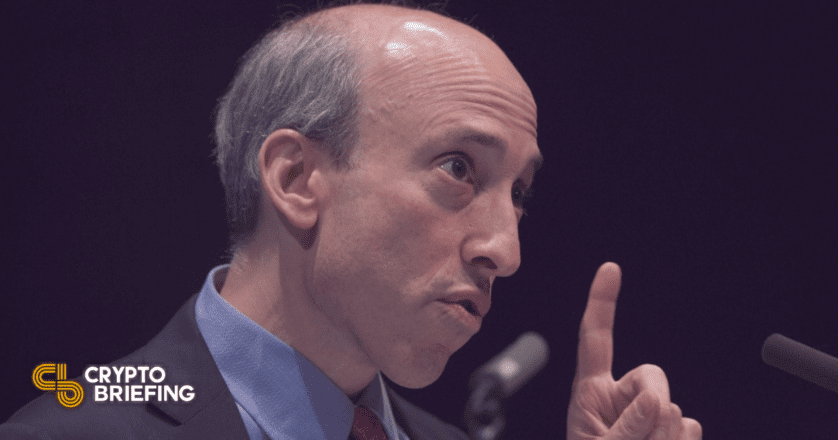Daily Briefing: “Crypto Asset Securities”
The SEC has charged Kim Kardashian for promoting the EthereumMax token without disclosing the amount she was paid to market the product. Jacob Oliver unpacks the update.

Key Takeaways
- The SEC has charged Kim Kardashian for promoting EthereumMax without sharing a sufficient disclosure of her payment.
- Kardashian agreed to pay a $1.26 million fine to settle the charges.
- In a possible hint at how the future of U.S. regulation may look, SEC Chair Gary Gensler said that Kardashian had promoted a "crypto security."
Share this article
Kim Kardashian was ordered to pay a fine of $1.26 million, a small fraction of her net worth.
SEC Charges Kim Kardashian
Today, the SEC announced charges against billionaire socialite and reality television star Kim Kardashian for her role in promoting the EthereumMax token in 2021. “Are you guys into crypto????” she said to her followers in an Instagram post worthy of an entry place in the cringe history books: “This is not financial advice but sharing what my friends just told me about the Ethereum Max token! A few minutes ago Ethereum Max burned 400 trillion tokens — literally 50% of their admin wallet giving back to the entire E-Max community.”
While I remember this pump when it happened, I don’t think I’ve thought about it since. Things happen so fast in this space that it’s hard to remember what happened last week, let alone last year. But institutions have long, compartmentalized memories—and they don’t easily get distracted.
So it’s hardly surprising that the SEC remembers the incident quite clearly, nor is it surprising to see Kardashian charged. According to the financial regulator, Kardashian’s true culpability lies in the fact that, while she disclosed that she was paid to promote EthereumMax, she failed to disclose the amount she was paid ($250,000 in this case). That’s a big no-no under U.S. securities laws, and that’s where this case takes a turn from a gossip-column non-story into something with actual consequences.
In announcing the charges, the SEC and its Chair, Gary Gensler, used the word “security” not once, not twice, but three times. Specifically, Gensler used the terms “crypto security” and “crypto asset security” in his tweet on the matter this morning; the SEC’s official Twitter feed Twitter feed also used the term “crypto security,” while the formal press release used “crypto asset security” as well.
Gary Gensler is arguably the most hated man in crypto, and today’s actions won’t win him any new friends in the space. Gensler, for his part, doesn’t seem to care about that—rather, it looks to me like he cares about having an active hand in writing the U.S.’s eventual crypto rules. That the word “security” is deftly nestled into all of these announcements is not accidental.
In other words, I don’t expect that this is the last time we’ll see the term “crypto asset security” coming out of the SEC, and the verbiage would indicate that not only does the SEC think of crypto assets as securities, but they think of them as their very own kind of security. And of course, special classification comes with special rules, and I’m sure the SEC will be all too happy to provide some.
Kim K., for her part, will pay a modest $1.26 million in fines, penalties, interest, and disgorgement—paltry pennies compared to her $1.8 billion net worth—and walks away largely unscathed. It’s a win for the SEC, though—they cried “security,” and it held up. Kardashian looks to have put up no fight whatsoever. A precedent has been set. This is how they’ll do it.
In any case, the likelihood of crypto assets escaping the purview of the SEC seems to diminish by the day. The rules for “crypto asset securities” are already being set. It falls to us to make sure that we have a role in writing them, too.
Disclosure: At the time of writing, the author of this piece owned BTC, ETH, and several other cryptocurrencies. The information presented in this newsletter is for educational purposes only and is not financial advice.
Share this article
